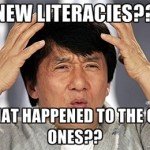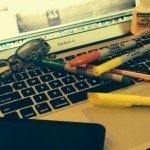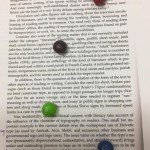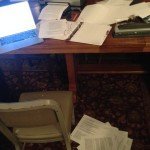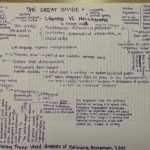Assignments
Reading Together
weekly
We’ll read and annotate together in a platform called Perusall: Perusall allows us to see each other’s comments, respond to each other, share links, and create a shared conversation around the ideas in our reading.![]()
To Join:
- Go to perusall.com, click Login, and then either log in using your Facebook, Twitter, or Google account, or create a Perusall account using your email address and setting up a password.
- Select I am a student and enter our course code JAXON-RV2GM.
- *Note: only students enrolled in the course can join our Perusall community.
*short walkthrough video that explains how to use Perusall embedded in the Welcome post.
Featured Curators
rotating weekly: due Sunday after our class session
 For one week this semester, you’ll be responsible for writing up summaries of our reading and class discussions. We’ll rotate this responsibility so that we have a public record of the texts, ideas, discussions, and questions we are posing about literacies. We’ll share your write-ups as a blog on our website.
For one week this semester, you’ll be responsible for writing up summaries of our reading and class discussions. We’ll rotate this responsibility so that we have a public record of the texts, ideas, discussions, and questions we are posing about literacies. We’ll share your write-ups as a blog on our website.
Your entry should include 1) a close read and summary of the texts we read/watch (for an audience outside our class); 2) a summary of our class conversations; 3) and your thoughts and perhaps questions that arise for you from that week’s conversations and readings. You’ll also share a bio and photo (doesn’t have to be a photo of you. See example below).
Send your write-up to Kim’s email (kjaxon@csuchico.edu) either as google doc or attached file (your choice) and include the bio and photo(s). I’ll post here, to our class website.
Due Sunday after our class session.
Here’s an example from a previous semester
Literacy Interviews
data due in class Thursday, Sept 22; write-up due Sunday, Oct 2
I’d like to provide opportunities in our grad course to try on the role of a researcher. Our goal with this particular task is to gather literacy narratives from our family and/or friends and then use their stories to compare to the reading we are doing together. We can use our interviews as a data set, thinking together what we learn about uses of literacy by our interviewees. Below are some guiding questions you can use, but think of this work more as a conversation with someone about their memories and ideas related to reading and writing.
Start by asking a family member or friend if you can talk to them about their memories and current practices of reading and writing. The best interviews are often with someone who is older. If you have a grandparent you can talk to or a parent, an aunt, then that is super cool.
For the interview, your “participant” could either answer questions over email, you could record a Skype or Zoom conversation, or take notes while you talk to them face to face (or mask to mask), or on the phone. You might want to try out an app called Otter.ai, which captures a transcript of conversation. Try to capture as much as you can exactly what your interviewee says.
You do not need to ask all the questions below. Choose a couple questions that seem relevant for the person and then hopefully the questions will kick off a conversation about literacy. Plan for a 20-30 min interview.
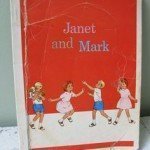 Potential Interview Questions—
Potential Interview Questions—
- Try to think of your earliest memories of writing and reading. What do you remember of reading and writing before you began school? Who helped you with it and what was that like?
- What kinds of writing did you see your parents, siblings, and other family members doing as you were growing up? What did they read, where, and when?
- What stories did your parents tell you about their own efforts to learn to read and write? What kinds of values did they place on reading and writing?
- How did reading and writing change as you entered elementary school? What did you do with reading and writing related to school tasks?
- What are you asked to do with reading and writing at this point in your life?
- When you were growing up, how much school reading and school writing was done with computers? What kinds of things did you do? What values did your teachers place on computer literacy?
- In the next ten years, what will reading and writing become? What skills and understandings about online literacy will people need to have? What about emojis and gifs and screen time; how do your friends and family use digital literacies? For what purpose?
Writing up your findings: Once you’ve conducted your interview, hopefully you can place the literacy interviews and Brandt’s insights together. What if our interviews were the only data we had that helped us to understand how people think about reading and writing: what might we learn about its importance or the role literacy plays in people’s lives? You could think of Deborah Brandt’s article as an example: notice how she describes the people in her study and their experiences with literacy (Raymond, Dora, etc). She is writing up her interviews in the same way you will, sharing what we learn from this data collection. You could also use any data you collected about your literacies and reflect on those ideas with Brandt in mind or compare to data collected about your own literacies to your interviewee. Use direct quotes from your interview when possible.
Examples from previous semesters:
Keyword Entry
Due Sunday, Oct 16 New deadline: Sunday, Nov 6
Sign up for a “Keyword” on the Google Doc that we will create together in class. Each of you will choose a different word. These words will emerge from our readings and discussions in the first few weeks of class.
Write an entry to our glossary of literacy terms. Most likely, you’ll want to review readings assigned so far and entries and postings from class members. Each entry should:
- Define it in your own words or quote from one of the articles that you think defines it well.
- Discuss its relationship to other words, synonyms and antonyms.
- Give 3 or 4 examples of how the word is used in context. Describe the idea or concept.
- Say why it is a useful or an important term for studying literacy.
- Explore questions that emerge from this word.
Entries should be around 500 words. Edit carefully. We’ll post on our shared Google Doc.
Examples from previous semester here
Links that may be useful with examples:
“Technology.” Keywords for American Culture Studies by Jentery Sayers
National Writing Project’s Keyword Project
Literacy Project
various due dates; see below and calendar
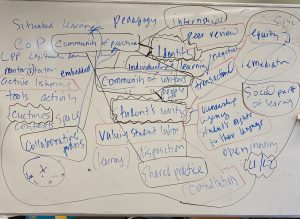 Choose a group whose literacy practices you want to learn more about. The group can be a group that meets face-to-face or it can be an online group. Describe and analyze how reading and writing operates within the group. Use our readings and our discussions to guide your use of terms and concepts.
Choose a group whose literacy practices you want to learn more about. The group can be a group that meets face-to-face or it can be an online group. Describe and analyze how reading and writing operates within the group. Use our readings and our discussions to guide your use of terms and concepts.
Begin by closely observing your group for at least a week. Take copious field notes. Do interviews (online or in person) if appropriate and record and/or transcribe them. You might also consider a survey or other form of data collection (see Sel Hartman’s example in Perusall for a great use of survey data). Read and reread your notes/data, noticing what seems most important or interesting. Focus in on making a claim about your group, a claim that might consider (but not be limited by) the following questions:
- What “work” does literacy do in the group?
- How is literacy learning sponsored?
- What genres are used? Why? To what extent is new media a component of the work?
- What does “literacy” in this group look like? What is its purpose?
- What is the role of literacy for newcomers? How does literacy facilitate or inhibit membership in the group? What role does literacy play in leadership? How does literacy support a structure of the group?
- To what degree is the group’s organization hierarchical or egalitarian (or in between)? How does literacy create, support, or maintain that organization?
We can develop further questions as you work with your data. This project has a few deadlines to support our work:
- A short memo/proposal about who/what you imagine researching (Oct 20)
- A short memo that includes excerpts of your data (Nov 10)
- A mini-literature review that supports the analysis of your data (Dec 1)
- A poster session at the end of the semester to share our findings (TBA: Dec 8 OR Final Exam time)
